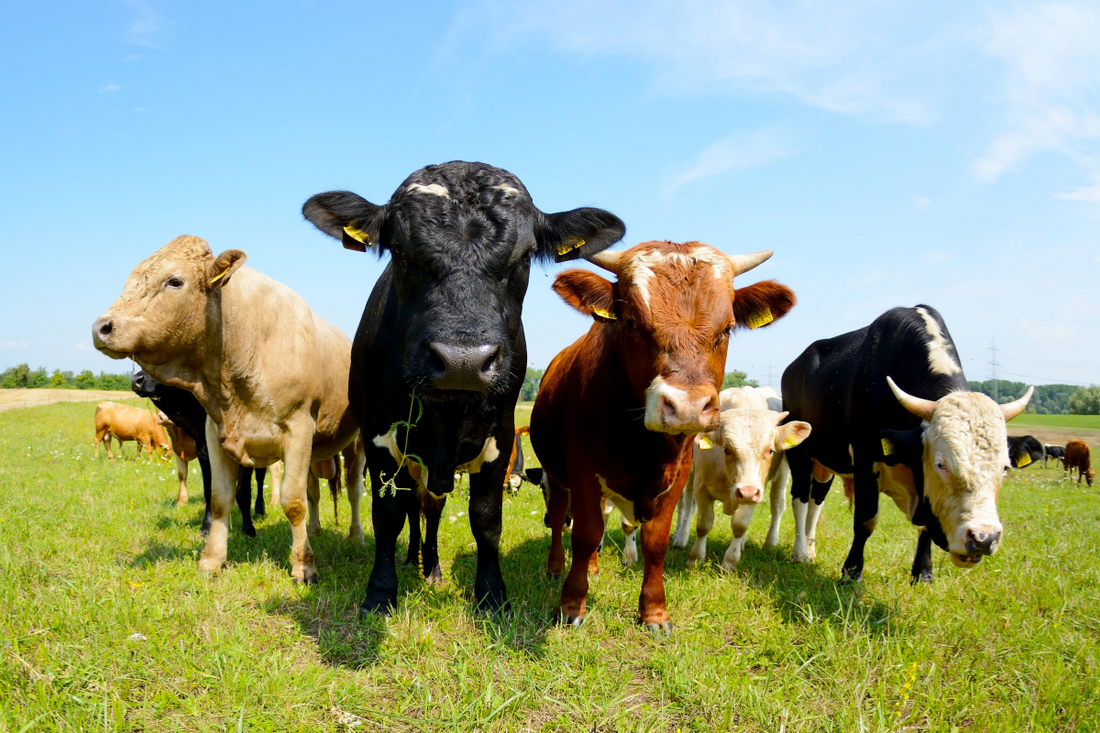
It’s Time to Bring Companion Animals into the Food System Conversation
As our climate, health, and food systems face unprecedented strain, we find ourselves in a critical moment of reckoning. Researchers, farmers, policymakers, and innovators are rightly coming together to rethink the foundations of agriculture, land use, and nutrition. Yet, one group continues to be conspicuously absent from this systems-level dialogue: companion animals.
This omission is more than a blind spot - it’s a missed opportunity to engage the public, uncover hidden vectors of ecological harm, and move toward a truly inter-species approach to planetary health.
At FETCH, we work at the intersection of canine care, ecology, and systems thinking. We’ve seen first hand how dogs - beloved members of millions of households - can act as powerful, tangible gateways into the deeply entangled issues of food, health, and environmental sustainability. When people begin to ask what’s in their dog’s food or question the chemical parasite treatments routinely administered without inquiry, they often begin to ask similar questions about their own health, their children’s, and their soil.
And yet, when we approached a leading UK food systems network to open a conversation about the role of companion animals in ecological health, the response was a polite but definitive no. The message was clear: companion animals aren’t on the agenda.
But they should be.
Companion Animals Are Part of the System
In the UK alone, over 17 million households have pets - mostly dogs and cats. These animals eat, defecate, shed, require healthcare, and exist within tightly controlled human environments. Their food is manufactured, often from industrial meat or byproducts. Their bodies are dosed monthly with pesticides that accumulate in soil and waterways. Their presence alters household microbiomes and chemical exposure levels - especially for infants and vulnerable populations.
And yet, despite their ubiquity and material impact, companion animals are treated as irrelevant to food system research. Why?
Personal Experience in a Siloed System
This disconnect isn’t surprising to us - because we’ve both experienced it from different sides.
As a former academic, Alexia spent years researching how creative and participatory practices can help navigate and reimagine complex systems. Her doctoral research into participatory art and design for wicked problems like climate change and food systems, explored how art and systems thinking can challenge entrenched silos in policy, academia, and practice. What she found was a persistent reluctance - even in supposedly interdisciplinary spaces - to step outside narrow definitions of “relevance” and truly engage with complexity. The barriers that keep companion animals out of food system discourse are the same ones that limit meaningful progress on climate, health, and land use.
Stacey, a long-term home educator, has spent a decade immersed in what happens when we allow space to ask better questions - especially those that cross conventional boundaries. In educating outside of institutional frameworks, she’s learned that real insight often comes not from linear answers, but from looking at the same issue from multiple vantage points. It's this perspective - curious, integrative, relational - that’s often missing in official conversations around food and sustainability.
Together, these experiences inform FETCH. We're not here to tinker at the edges. We’re here to open up the system.
The Cost of Anthropocentrism
At the root of this exclusion is an outdated anthropocentric model - one that sees "the food system" as something that feeds humans alone. But this is no longer viable. If we are to build regenerative, resilient systems, we must expand our lens to include all the beings who share our homes, our landscapes, and our lives.
The veterinary sector, for example, remains largely absent from critical discussions about pesticide use and soil health. The same neonicotinoids and parasiticides that have triggered alarm in agriculture are routinely applied to pets - with little oversight and no systemic analysis of cumulative ecological impact. If we’re serious about reducing chemical loads in ecosystems, why are we ignoring the flea treatments in every cupboard?
Toward a Whole-Home, Whole-Farm, Whole-System Approach
Companion animals are not an aside to the food-health-environment nexus - they are a reflection of it. Their care choices mirror larger systemic dynamics. They reveal the inconsistencies in our thinking. They offer an emotional, accessible entry point for millions of people who might otherwise be left out of complex policy and academic debates.
We are calling for a joined-up, interspecies approach to health - one that integrates veterinary practices into ecological thinking, that brings pet food into the sustainability conversation, and that acknowledges dogs and cats not just as consumers, but as ecological actors embedded in shared systems.
Imagine a model of whole-home health, where reducing toxins for the dog means reducing toxins for the child, the caregiver, the soil, and the water supply. Imagine a model rooted in nutritional care and ecological balance, where fresh, functional food supports human, canine and planetary health.
This isn’t fringe thinking - it’s urgently practical.
The System Can’t Change If It Can’t See Itself
When research bodies silo themselves off from “non-essential” topics, they risk missing the very innovations and connections needed to move forward. Companion animals may not be high on institutional agendas - but they are deeply present in people’s lives. This makes them a potent vector for change.
We urge food systems researchers, funders, and policymakers to open their lens. Not to shift focus away from urgent human needs - but to recognize that human, animal, and planetary health are fundamentally inseparable.
Let’s stop asking whether dogs belong in food system research - and start asking what their presence might reveal.
By Dr. Alexia Mellor & Stacey Renphrey, Co-Founders of Learn FETCH
